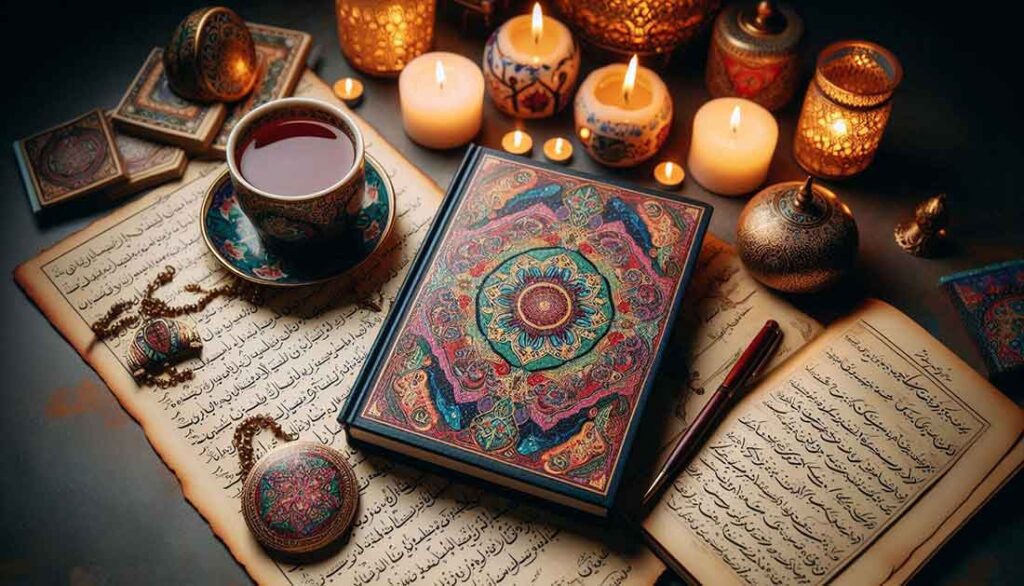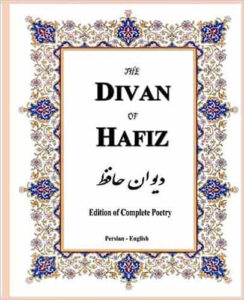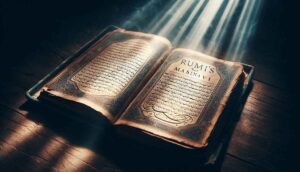Hafez’s horoscope, known as Fal-e Hafez, is a cherished tradition in Persian culture that combines poetry, spirituality, and divination. Originating from the profound works of Khwāja Shams-ud-Dīn Muhammad Hāfez-e Shīrāzī, a 14th-century Persian poet, this practice offers guidance and insight through the interpretation of his mystical verses. In this comprehensive article, we explore the history of Fal-e Hafez, its cultural significance, and how to perform this timeless ritual.
Table of Contents
ToggleThe Historical Background of Hafez
Life of Hafez
Born around 1315 AD in Shiraz, Iran, Hafez became one of the most influential poets in Persian literature. His Divan, a collection of over 500 ghazals (lyric poems), quatrains, and other works, delves into themes of love, faith, and the human experience. Hafez’s poetry is celebrated for its intricate metaphors, emotional depth, and spiritual insights, which transcend time and resonate with readers across generations.
Cultural Significance
Hafez’s works are deeply embedded in Iranian culture and have influenced Persian art, music, and philosophy. His poetry is not only studied academically but also integrated into daily life, ceremonies, and festivals. The universal themes and rich symbolism in his verses make them a source of wisdom and reflection.
The Origin of Fal-e Hafez
Emergence of the Tradition
The practice of Fal-e Hafez emerged shortly after Hafez’s death as people began to seek answers to their personal questions through his poetry. Believing that his words carried divine inspiration, individuals turned to his Divan for guidance, much like consulting an oracle.
Spiritual Beliefs
In Sufism, a mystical Islamic belief system, poetry is a means to express the ineffable aspects of spirituality and the soul’s journey toward the divine. Hafez, being a Sufi poet, infused his work with layers of meaning that could be interpreted on multiple levels—literal, metaphorical, and spiritual. This richness made his poetry an ideal medium for divination.
The Practice of Fal-e Hafez
When Is It Performed?
Fal-e Hafez is commonly practiced during significant cultural events and personal moments:
- Yalda Night: On the longest night of the year, families gather to read Hafez’s poems, seeking insight for the coming year.
- Nowruz: The Persian New Year is another occasion when Fal-e Hafez is performed to embrace new beginnings.
- Personal Milestones: Individuals may consult Hafez when facing important decisions or seeking comfort during challenging times.

How to Perform Fal-e Hafez
Step 1: Set Your Intention
Before beginning, focus on a specific question or situation you seek guidance about. Clear your mind and center your thoughts on your intention.
Step 2: Choose the Divan of Hafez
Select a copy of Hafez’s Divan. Physical books are traditional, but digital versions are also acceptable. Some people believe that an older, well-used copy carries more spiritual weight.
Step 3: Perform the Ritual
- Invocation: Some practitioners start with a short prayer or moment of silence, asking for clarity and guidance.
- Random Selection: Close your eyes and open the Divan to a random page. With your eyes still closed, place your finger on a spot on the page.
- Read the Poem: Open your eyes and read the ghazal or stanza your finger landed on. If your finger is between two poems, you may choose the one that resonates more or read both.
Step 4: Interpretation
- Initial Reading: Read the poem fully to grasp its overall message.
- Reflect on Symbolism: Consider the metaphors and symbols used. Common symbols include:
- Wine: Spiritual ecstasy or divine love.
- Beloved: The divine or ultimate truth.
- Garden: A place of spiritual cultivation.
- Relate to Your Question: Think about how the themes and messages relate to your situation.
- Trust Your Intuition: Allow your feelings and intuition to guide your understanding.
Tips for Effective Interpretation
Understand the Language
If you read Persian, engaging with the original text can provide deeper insights. For non-Persian speakers, seek out reputable translations that capture the essence of Hafez’s poetry.
Consider Multiple Perspectives
Discussing the poem with others can offer new interpretations. Different viewpoints can enrich your understanding of the message.
Be Open to Metaphorical Meanings
Hafez’s poetry often operates on multiple levels. Be open to abstract or symbolic interpretations rather than seeking literal answers.
The Role of Fal-e Hafez in Modern Society
Psychological Benefits
Engaging with poetry for guidance can offer emotional relief and a sense of connection to something greater than oneself. It promotes self-reflection and mindfulness.
Cultural Preservation
Practicing Fal-e Hafez helps preserve Persian cultural heritage, passing traditions down through generations and keeping the poet’s legacy alive.
Global Appeal
Hafez’s universal themes have attracted a global audience. People worldwide practice Fal-e Hafez, finding personal relevance in his words regardless of cultural background.
Ethical Considerations
Respect for Cultural Practices
When engaging with Fal-e Hafez, especially as someone outside of Persian culture, it’s important to approach the practice with respect and sensitivity.
Avoiding Superstition
While Fal-e Hafez is a form of divination, it’s intended as a tool for reflection rather than a definitive prediction of the future. Use it to gain perspective, not to make decisions without careful consideration.
Conclusion
Hafez’s horoscope is more than a tradition; it’s a bridge connecting individuals to the profound wisdom of a legendary poet. By understanding its history and learning how to perform Fal-e Hafez, you can tap into a rich source of guidance and reflection. Whether seeking solace, inspiration, or insight, Hafez’s timeless words offer a journey into the depths of the human spirit.







